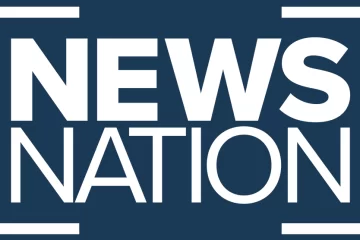HARLOW: Gershon Baskin is with us. He helped negotiate the 2011 release of Israeli Soldier Gilad Shalit from Hamas custody.
Gershon, thank you for being with us this morning.
Are you optimistic or quite pessimistic that Hamas will release more of their hostages?
GERSHON BASKIN, UNOFFICIAL ISRAELI NEGOTIATOR: It seems that Israel and Hamas are back on the warpath and, once again, the Israeli government is determined that the primary objective is the military objective and not returning the hostages.
At the same time, the hostage families are increasing the pressure on the government and on the society to put the hostages back in the number one place. I think that Hamas is not interested in renewing negotiations now for various reasons. Neither is Israel. And that’s why we really need to make the Israeli government understand that they have a moral responsibility to bring these hostages home first. That’s the most important thing that needs to be done.
HARLOW: How would you induce Hamas to come back to the table?
BASKIN: I would make them an offer they couldn’t refuse. I think this is what the Israeli government needs to do. Israel is generally passive in these kind of negotiations. They respond to what Hamas is willing to give or not willing to give. I think Israel needs to pass a message on through the Qataris and the Egyptians and the Americans of an offer it won’t be the all for all deal that Hamas wants, but I think that we must get home the young women who are still there, the elderly, the wounded and the sick hostages. At least those.
And Israel knows how to make an offer. There are 7,600 Palestinian prisoners in Israeli prisons right now. Hamas will demand prisoners who have killed Israelis. I think that Israel will have no choice but to release some of them as well. But Israel should make an offer big enough that Hamas will be enticed to take it. And it will also involve another pause for several days to facilitate the release of these hostages.
HARLOW: One of the key points of fracture after the ceasefire ended and the talks broke down after seven days was that Hamas didn’t release a number of women, young women, that it is still holding. A number of them 20 to 30 years old, taken from the music festival. And the State Department gave some insight into why they believe that is yesterday, saying Hamas doesn’t want those women to say what they went through. The sexual violence, the rape that they endured.
And here’s what CNN contributor Barak Ravid said about that last night.
(BEGIN VIDEO CLIP)
BARAK RAVID, CNN POLITICAL AND FOREIGN POLICY ANALYST: This is something that was kept pretty quiet in Israel, this assessment. They didn’t want to put it out. And they were quite surprised that the State Department said it publicly today. But I think it reflects the intelligence assessment of the Israeli intelligence services.
KAITLAN COLLINS, CNN ANCHOR: Why did they not want to put it out? Were they worried it would jeopardize the hostage release that was ongoing or what is that?
RAVID: I think they – I think they were worried that it might harm the hostages that are still in Gaza, the women themselves.
(END VIDEO CLIP)
HARLOW: I wonder if you agree with that.
BASKIN: I do agree with Barak on that and I think even more so that if, in fact, it is true, the assessment of Israel, which has been gathered a lot from the hostages who came home, these women have been exposed to horrific sexual violence and gang rape. And we can expect that Hamas will kill them and not release them. We have to imagine the worst and hope for the best and act quickly to get everyone home that we can.
HARLOW: The central question after hopefully these hostages come home is what – what happens next. What is the end game and the plan for the Palestinians in Gaza? You wrote a really fascinating piece this week, sort of an open letter to a man named Marwan Barghouti. Can you tell people who he is and why you wrote it?
BASKIN: Marwan Barghouti was the elected speaker of the Palestinian legislative council, the Palestinian parliament. He was also the person who led the second intifada and there’s such — in 2002, Israel caught him and imprisoned him. He was tried and convicted of directly responsible for the death of five Israelis and was sentenced to five consecutive life terms plus 40 years in prison. He is also the most popular Palestinian politician. He, in every single Palestinian political poll over the last two decades, comes out number one above everyone else.
I’ve been in — I know Marwan from before he was arrested. I’ve been in contact with him over the years through his lawyer and have engaged in a kind of dialogue with him in the past year and a half in which Marwan still says that he supports the two-state solution and believes that peace between Israel and Palestine is possible. And if he is going to be elected by Palestinians once they do have free, fair, open elections, we, in Israel, should be engaging him in a dialogue, in the kind — same kind of dialogue that took place between the — both the government of apartheid and Nelson Mandela.
[06:50:10]
HARLOW: Despite the fact that he was convicted of murder and attempted murder, serving five consecutive life sentences, you think that is a possible and palatable option?
BASKIN: I think, first of all, it’s important to recognize that he was not convicted of killing anyone himself, but being responsible for the death of Israelis. He did lead the second intifada. I think he made a tragic mistake when he did that.
He also refused to recognize the legitimacy of court and offered no defense whatsoever. So, it wasn’t really a fair trial for him. He did read an indictment at the end of his trial, an indictment against the occupation and the state of Israel. And I think that we need to recognize that, at the end of the day, it’s enemies that make peace. You don’t make peace with your friends. You don’t need to. We need to embrace our enemies. And Marwan Barghouti is going to be the next elected leader of the Palestinian people and there’s a chance that he would be, we should be talking to him.
HARLOW: It is enemies that make peace.
Gershon Baskin, always good to have you. Thanks very much.
BASKIN: Thank you.


